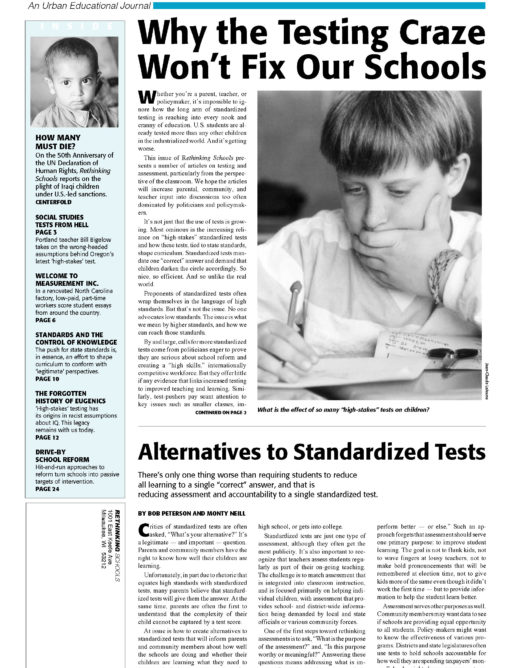Preview of Article:
Welcome to Measurement Inc.
You thought teachers were evaluating student writing? Think again. A visit to the renovated North Carolina factory where part-time workers grade student essays shipped in from more than two dozen states.

